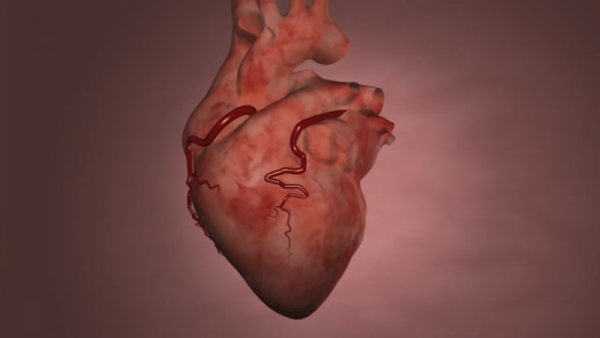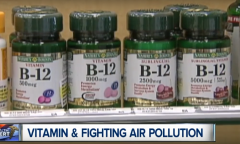By Mala Srivastava, | March 18, 2017

Non-steroidal anti-inflammatory drugs (NSAIDs), such as ibuprofen, are one of the most used painkillers throughout the world for pain relief. (YouTube)
According to a new study, ibuprofen, diclofenac, and other painkillers can cause high blood pressure, heart attack, stroke, and heart ailment.
Ibuprofen, a medicine used to cure backaches or headaches, can raise the threat of cardiac arrest. Non-steroidal anti-inflammatory drugs (NSAIDs), such as ibuprofen, are one of the most used painkillers throughout the world for pain relief.
Like Us on Facebook
These medicines are available in pharmacies without any prescription. The use of NSAIDs can lead to platelet aggregation, leading to blood clots, causing arteries to contract, raise fluid retention and lead to an increased blood pressure.
The NSAID drugs hold the greatest chances of causing high blood pressure, heart failure, stroke, and heart ailment, the study suggests.
Gunnar H.Gislason, the author of the study, said that allowing these drugs to be bought without a prescription, and without any restrictions or advice, sends a message to people that they must be safe, The Independent reported.
Researchers carried out a study to find out the relationship between cardiac arrest and the use of these drugs. For the purpose of the research, information of people who suffered a heart attack outside the clinic between the years 2000 and 2010 was collected from the Danish Cardiac Arrest Registry.
Also, scientists collected data on NSAID prescriptions from pharmacies from 1995. The prescriptions included COZ 2 selective inhibitors, such as rofecoxib and celecoxib, and non-selective NSAIDs such as ibuprofen and diclofenac.
Researchers used a case-time control design in the study. Each of the subjects was used both as the control and the case for two different time periods.
Subjects who took the NSAID 30 days before the cardiac arrest (case period) were compared with the subjects who took the NSAID drugs preceding the 30 days without any heart attack (control period).
Out of the 28,947 subjects diagnosed with an out-of-hospital heart attack, about 3,376 patients were treated with NSAID 30 days before the heart attack. Ibuprofen and Diclofenac were the most commonly used NSAIDs, with Diclofenac counting to 51 percent and Ibuprofen covering 22 percent of NSAID use.
The consumption of any type of NSAID was found to raise the risk of cardiac arrest by 31 percent. Ibuprofen and diclofenac contributed up to 31 percent and 50 percent of increased risk of cardiac arrest.
-
Use of Coronavirus Pandemic Drones Raises Privacy Concerns: Drones Spread Fear, Local Officials Say

-
Coronavirus Hampers The Delivery Of Lockheed Martin F-35 Stealth Fighters For 2020

-
Instagram Speeds Up Plans to Add Account Memorialization Feature Due to COVID-19 Deaths

-
NASA: Perseverance Plans to Bring 'Mars Rock' to Earth in 2031

-
600 Dead And 3,000 In The Hospital as Iranians Believed Drinking High-Concentrations of Alcohol Can Cure The Coronavirus

-
600 Dead And 3,000 In The Hospital as Iranians Believed Drinking High-Concentrations of Alcohol Can Cure The Coronavirus

-
COVID-19: Doctors, Nurses Use Virtual Reality to Learn New Skills in Treating Coronavirus Patients











